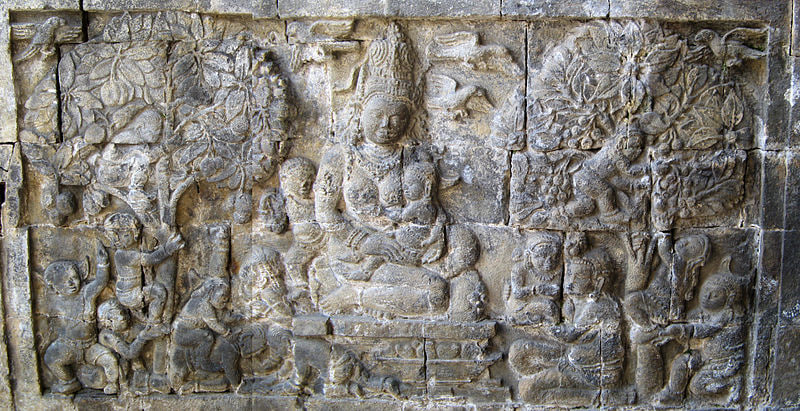Hariti
Hariti, a figure revered within Buddhist and Hindu traditions, emerges as a compassionate mother goddess in her depictions. Her narrative transcends geographical borders, echoing through the diverse tapestry of Buddhist cultures, spanning South Asia to East Asia. The reach of her reverence extends to the farthest corners where Buddhism flourishes, underscoring the universal resonance of maternal love and boundless compassion.
In the annals of Buddhist lore, Hariti transforms from an evil spirit who causes harm to children into a benevolent deity who safeguards them. Celebrated in her maternal guise, she embodies the sentinel of children's well-being, caring, sustenance, and an outpouring of affection.
As she evolves into a compassionate mother goddess, Hariti's iconography shifts, now embodying the essence of fertility and nurturing motherhood. Her portrayal radiates warmth, often cradling children and enveloped in an aura of abundance, vividly manifesting her roles as provider and guardian.
Practitioners engage in rituals, prayers, and offerings, seeking Hariti's blessings to bestow children's health, security, and prosperity. Her embodiment as a mother goddess becomes a beacon of nurturing solicitude, harmonizing cultures and beliefs within her universal embrace.











